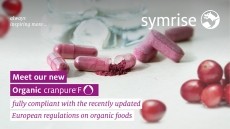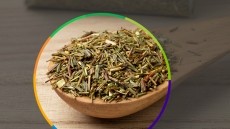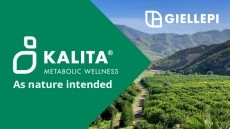Flavonoids linked to better breast cancer survival
survival by over 30 per cent, suggests a new epidemiological study
from the US.
The study of 1,210 women newly diagnosed with breast cancer found that individuals with the highest intake of flavones and isoflavones prior to diagnosis had a 37 and 48 per cent lower risk of all-cause mortality. Lead author Brian Fink from the University of North Carolina states, however, that the results are limited to postmenopausal women and that larger studies are needed to confirm the findings. The study is published in the journal Cancer Epidemiology, Biomarkers & Prevention. Flavonoids, a class of antioxidants found in tea, red wine, soybeans, fruit and vegetables, are the focus of increasing study since oxidative stress has been linked to an increased risk of various diseases including cancer, Alzheimer's, and cardiovascular disease. The new research used a food frequency questionnaire (FFQ) to assess dietary intake of different flavonoids for the women, aged 25 to 98, during the 12 months prior to diagnosis with first primary invasive breast cancer. The population-based, case-control study by Fink, in collaboration with researchers from six other institutions, reported 173 deaths amongst the study population, including 113 from breast cancer. The researchers report that women who reported the highest average intake of flavones, isoflavones, and anthocyanidins were associated with a 37, 48, and 36 per cent reduced risk of all-cause mortality, with similar results reported for breast cancer mortality. "Mortality may be reduced in association with high levels of dietary flavones and isoflavones among postmenopausal U.S. breast cancer patients," they concluded. The study does have several notable limitations, including the reliance on the FFQ for dietary recall over the course of one year, which is subject to recall error. In March, Fink also reported that flavonoid- and lignan-rich diet was associated with a significant reduction in the risk of developing breast cancer in postmenopausal women (American Journal of Epidemiology, Vol. 165, pp. 514-523). Interest in flavonoids is growing rapidly and a mounting body of science, including epidemiological, laboratory-based and randomised clinical trials, continues to report the cancer-fighting potential of a number of different flavonoids, such as isoflavones, anthocyanidins and flavonols. According to Business Insights, the market potential for flavonoids in the dietetic and nutritional supplement market is in excess of €670m ($862m) for 2007, with annual increases of 12 per cent. Over one million women worldwide are diagnosed with breast cancer every year, with the highest incidences in the US and the Netherlands. The National Cancer Institute estimates that 13 percent of American women will develop breast cancer during their lives. The researchers were affiliated with the University of North Carolina, University of Toledo, University of South Carolina, Mt. Sinai School of Medicine, Columbia University, Albert Einstein School of Medicine, and the National Cancer Institute. Source: Cancer Epidemiology, Biomarkers & Prevention November 2007, Volume 16, Number 11, Pages 2285-2292 "Dietary Flavonoid Intake and Breast Cancer Survival among Women on Long Island" Authors: B.N. Fink, S.E. Steck, M.S. Wolff, J.A. Britton, G.C. Kabat, M.M. Gaudet, P.E. Abrahamson, P. Bell, J.C. Schroeder, S.L. Teitelbaum, A.I. Neugut, and M.D. Gammon










